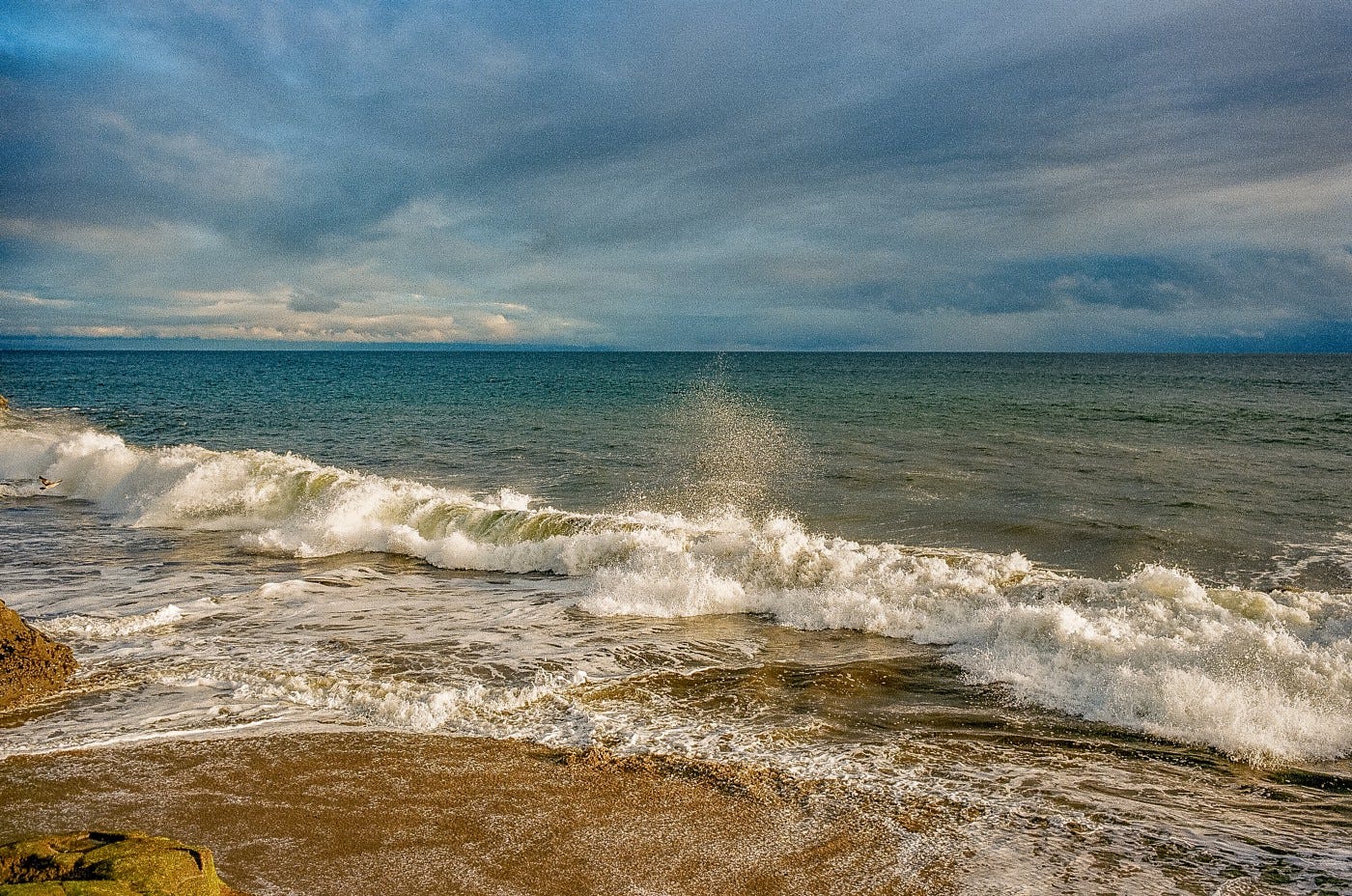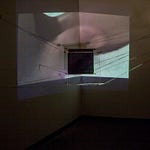This article was drafted months ago, and had to be entirely redressed due to recent events. Then it had to ferment for a few more months. Every time I sent out something that feels significant to the foundational layer of human soul, even if it’s only my metaphorical riverbed, I feel a paralysis. I try to remember this is not a fear alone, but rather a knowing of the imperfection of a singular voice, a singular perspective. As reality is something we all contribute to, the illusion of a uni (one) verse, is a form of delusion, of magical thinking. So I address the wide-eyed wonder of such phrases holy crap is used for with a knowing that shock, or disbelief, may be the closest we come to understanding our personal values. Because the idea humans ought to not have any expectations reduces, and invites a regression of human behavior, and a tolerance, as a word once believed good, really depends on the context of the situation it is used. In recent times, tolerating intolerance becomes a muddy ethical slope. So hopefully you’ve got your thick rubber boots on, and are ready to traverse some mud, for awhile.
Philosophical pontification in tragic times presents a paradox in the belief of luxury, yet offers itself as spiritual necessity to keep from imploding with grief. Within the plethora of holy crap moments, to sort out the difference in a sensitivity to the space where empathy resides that fertilises growth, instead of languishing into a sticky anguish of helplessness conjures tougher cookies. The futility of martyrdom and tensions of wanting to change the world reveal good intentions can, metaphorically and actually, backfire. Therein this newsletter may trespass, as often such issues of boundaries about what is holy, crap, or holy crap are within current world events.
Empathy is talked about quite a lot, but what empathy actually is and does is a bit like the question of sanity. Everyone has different tolerance levels for predictability and mutability. Enduring the bodily aches of feeling for each other and ourselves is a voyage to carefully navigate. One must be careful to not build a cave for pain to reside as this erodes the roots of the soul. The proper balance of space to grieve facilitates the carrying on of life, whereas the pushing and forcing makes more crap. This chasm between care and action can perform as a space where both great maelstroms are born and new growth formed.
Maintenance and care are responsibilities for every body. Spirit is not a machine with easily replaceable parts, just as bodies are not cogs in systems. Cynical lenses of comparing life itself to mechanisms tends to produce an apathy akin to mold atop the holy crap of hellish human folly.
Breathing wind into cognitive dissonance, fight or flight, or moments muddying the spirit. Spiritual space is ephemeral and woven with mental space so intricately they may form from the same fiber of being. The psyche, or contents of the mind, are both doings and undoings of worlds, dark alleyways or pathways to light. Psyches are easily influenced threads tethered to the realms of society. The relating through communication another site of holy crap moments in life.
Terese Longva created a project called: The World Has Become So Accurate (Verda er blitt så nøyaktig), an installation with video and book coauthored with Harald Dyrkorn. The title reveals a great truth and the contents within the contemporary myths motivating human behavior patterns such as creating and destroying.
American and European culture industries are often embedded with educational systems busied by historic trauma identities. It’s as if the pain of the past is supposed to justify the hatred of today. When it comes to just or lawfulness, the spectrum of permitted behaviors inspires the kind of head tilting dogs do when they try to understand what humans are up to.
Canons, as academic histories in art are often called, became levers and catapults for embarrassing human behaviours ranging from shouting matches over various forms of media or more quietly canceling of different points of view. The anti-enlightenment values campaign has created a cultural landscape with predictable aesthetics. If theses cultural products are to be seen as a mirror to educated and civilised societies, did the education of the minds nourish the soul or fuel suffering canons to deploy human lives as programmed projectiles? Such programs are not operations I wish to participate, and add to the holy crap pile.
I want to look at why there is a curtain, what the apparatus performs, peer through the eyes to connect with the minds ablaze on screen involved in insidious saboteur behaviours offscreen. I have been repeatedly informed of this notion I regretfully share here: how naive to believe people wish others well, and find it unthinkable that some individuals go through great lengths to ensure the failure of others. I still wonder what a world of acceptance and love would look like. Would humans continue to cut down and form nature? probably…and so we have case examples in punk rock trees:
Mental wars are not as obvious as the spineless wrath of physical war, however as Elaine Scarry writes in The Body In Pain, The Making and Unmaking of the World, the physicality of mental war lives through bodied life, through diseases manifested as side-effects of behavior born of boredom with plenty. Again with the catapults of idea and cultural wars, wild west and technocratic posturing and facade building, attempts to cover the up the inner realms. This is where the palpable but hidden in plain view mental poverty flourishes. To the untrained eye, cultural voyeurism flourishes in the absence of abject tragedy and abundance of inner poverty. Yet all the while the surface appearance hints and often accurately reveals the visceral nature relationship human life has with the macro and micro, the biological and viral, invisible yet actual magnetic forces of life clearly reveal the mystery itself. That which is upon the surface today, falls to the depths, and the decay revives again one day.
Stopping conflict or being anti-anti has become a cultural trend that sounds good on paper yet often is performed as drapery hiding the greatest pains today and stifling the voices choked on their own tongues. Understanding partners well with acceptance, and thus requires levels of bravery to connect with honesty to function. Rumi aptly suggested: maybe you are searching among the branches for what only appears in the roots. Roots require nourished soil free from parasitic invasions to flourish.
I dearly hope the aforementioned observations are indeed obvious. That’s one of the funny aspects about the word: once said or read some kind of doubt evaporating light shines in, or something else occurs entirely out of friction. Such as hot knives slice butter more easily, intense conflict beams clarity upon discernment making a labor of lifting more than one can normally possible. Ideas can indeed be heavy and destructive. In times of disharmony the puzzle of various offshoots in culture reveal the parts generating growth and nourishment, and other pieces festering disenchantment and sorrow.
Identity politics have serviced division and tribal ways through a blend of cherry-picked fermentation of European philosophy, often with a “fun” new-age twist. This canon constituted by a narrow, post-modern worldview about how horrible and terrible everything is today and therefore must be usurped, as Thomas Sowell wrote about the pursuit of cosmic justice are plainly destructive motors.
A great cultural gaslighting occurs where people perform rituals based on “thought leaders” sending horrifying chills through my spine because the fun after party feel of conferences tends to coincide with the motives in social justice causes often rooted in revenge. Admittedly, I do not have a lot of experience in revenge because the thought of it always has this stench of iron and made my stomach turn the wrong direction. But I have encountered it, felt it, and felt weighted down by such world views. To make something upright and correct again, doesn’t make a lot of sense to be sawing down or demolishing that which has been growing again.
So I beg the questions of intelligence be asked, what kind of wisdom creates the results deemed intelligent? Which qualities of human nature are akin to viral spread or bacterial growth? What choices create health within and around?
In taking on philosophic pursuits and artistic research, I have witnessed the rise of sophistry as a great undertaking. As churches once had the lay of the births, graveyard, marriage, water blessings, condemnations, and law, the cultural industries are politicised to a point of muddied waters complete with dolled up swamp things. And if you take a look around at art and culture, it indeed holds a mirror to the realities people are facing. The idea that art would or could transform became accepted as a myth or lie, when in fact many people have healed by the grace of witness culture had created.
To where do people look for grounding, spirit, sanity and catharsis and can health beings grow in toxic environments? and who decides what is good for other bodies or not? As it seems everyone is very clear about what other people ought to be doing and yet if left to make up their own mind…what would that landscape look like?
Rhetoric wears away the vital energies in and of a life, as does too much indecision or patience. The virtues are damned blessings and yet in some ways, a quieter path. A way of solitude avoiding the dramas of today’s culture wars that reportedly increase freedom but increasingly seed distrust, mafias, cult-and tribal behaviours as the limits of human tolerances confront a reality that sovereignty creates sanity.
In what faith can one find or create meaning when trust is abdicated to experts at the advisory boards of systems. It is not a wonder distrust in religion, politicians, technocrats, businesses, academia and the culture industry runs wild. Where can soul food, deeply nourishing such as the “old” works of poets, painters, musicians, authors, filmmakers, photographers and multimedia artists remaining deeply relevant today be matched with the plight of today’s existential writhing?
Escapism hurts both the individual and the society and such experiences are obliterated in the cosmological church of life. The North Star of discernment may guide but does not grow in the same way sun does. If systems and structures are not producing nourishing culture I implore the voices of people to speak up instead of relying on industry experts. How else can there be a balanced conversation if voices remain hushed? Where and how can morality and healthy ethos be depicted without talking about what is sensed and seen?
I’ve often balked at the notion of a thought leader; how such a concept could not be seen as that of a minister? There are roles inventing such as “minister of culture” leading the departments for who decides culture. Would not the greatest choir or symphony be the one that needs no leader and knows how to cooperate based on knowing and trusting within themselves how to be and adapt with a group? Such idealism was beautifully exemplified in the film, As It Is In Heaven. I was able to receive such a magnificent story brought to life on a Rilke-ian way of allowing people to express what they really think and how they really feel by the coaxing of a dear friend and supporter of innovation. We are different, vastly, and those differences allow us to open up to new worlds of existence. Therein can be found the myth…that if something is popular, it is automatically must be great and universal. Rilke, for example while fuelling my remembering festers in some such as the maelstrom. Plurality must hypothetically be what people seek in the pursuit of equality; equality a damned pile of holy crap right now if you ask me. Holy crap after all being in denial of the reality everything is interrelated and magnetically flowing based on the laws of nature (with pluses and minuses).
The kind of power needed to move through such dangers in nature are actually where we find ourselves, such as the boat propelling through a maelstrom. It’s not really bravery that makes someone wise but how that courage is applied. And for that, I must admit a great number of failings.
For example, the belief humans are born loving and kind (when reality is life often screaming and kicking, or in need of resuscitation). In so many ways, life is painfully unjust. Instead of canonising adolescence as a culture industry and pathologizing unconformity, what if creating loving and spacious rights of passage for maturation made the need for celebrity and heroism obsolete?
As a friend pointed out to me two-days ago, Iceland allowed the murdering of Basques until repealing a law in 2015, from the 1600’s. That bureaucratic obsolescence arrived a bit late, now didn’t it? This brutality of human spirit is considered natural, but I think bureaucratic hubris is more insidious because it hides in plain sight as good and right for human life while at the same time killing the spirit that invokes joy and the structures that promote cooperation and life. Truth has a history of being called conspiracy and being buried. Humans when carrying the life of another body are cooperating in driving the forces writing history. It’s not like someone went Oops! we invaded that country, made quite a mess, sorry bout that, be going now! The fall out and responsibility is abdicated and deflected which makes me wonder why bad feelings are pathologized when such features of conscience are expected to be side swiped to contend with repetitious and monotonous labor producing what?
Regardless of whether the mind comprehends in the higher being, magnetic organising structure, or geopolitical matrix, the consequences of thought patterns becomes transposed through action and behaviours. Some movements make sense, some movements make cents, and some are both senseless beyond repair. Even in the absence of consequences, unless you are a psychopath, the sense of conscience (with, science) arises the process of questioning a theory. As Rilke wisely wrote living with the questions is the way to go. Such a way of living invites wonder as an anecdote for doubt and an ability to face the unknown without problem-solving motors.
But it depends a lot on context, the landscape, where the power required to confront the abyss and the unknown, to know oneself, to know ones limits, and to know where one can serve the most good can take an entire lifetime to understand. To create a truly empathic society, pain and sorrow are feelings endured and tolerated in the motive for production, consumerism, and trade value.
As anyone who has experienced great tragedy knows how much time passes until, for example, PG&E pays out homeowners’ insurance, the idea of right and wrong motor waves that can take years, if not decades or lifetimes, to sort out. The more learning gained from experienced minds, the higher percentage of follies that seemingly could have been prevented. And in this point of history, averting larger scale crisis seems a lesser evil than the petty virtue signalling of popular culture.





















Share this post